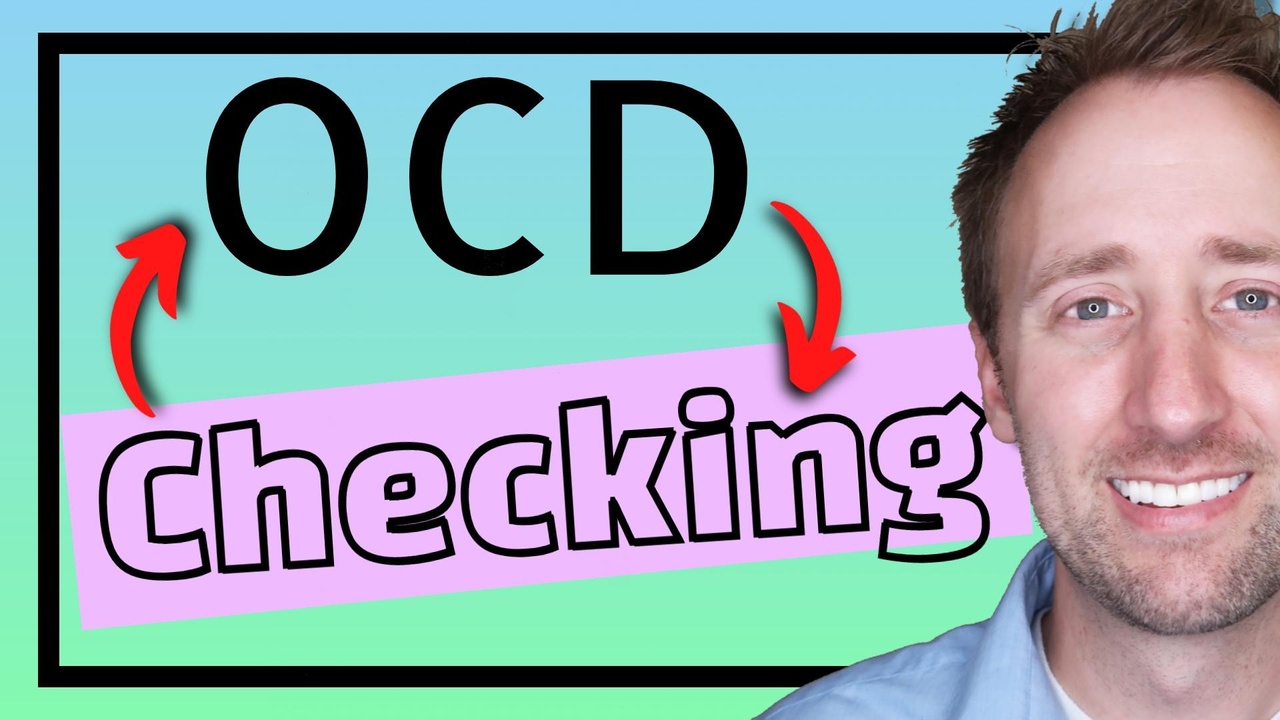Checking OCD - How to STOP checking the door, stove, internet, etc
Aug 22, 2022
Checking OCD and how to stop
This is Nathan Peterson, licensed clinician and OCD specialist.
Is the door locked? Is the stove off? Did I shut off the water? Did I turn off the lights? Did I send an inappropriate email? Did I forget something important? Did I unplug the toaster?
How about I check one more time....just in case? Checking OCD or rather these compulsions are tough because was is the harm checking one more time? I mean, it doesn't take very long to do and you ensure that you've kept yourself safe or others. At least that's what your brain wants you to think.
We will be going through what checking OCD looks like what we're gonna do about it.
Ultimately individuals who have this type of OCD will often think that somehow they will cause harm or something bad to happen to either themselves or others. Intentionally or not. What wins every single time is that it's not worth the risk to not go check. Individuals often think if they don't go back and check, they will have this thought on their brain all day.
This checking can fit in many areas of someone's life. They can be driving a car go back and check if they hit somebody because they went over a bump. Back multiple times, just to make sure. They may be checking the news to see if there any reports of somebody getting hit. Someone may check their browser history to make sure they didn't look at anything inappropriately. They could check body symptoms for any health concerns. Check for moles, lumps, heart, and really anything that indicates a problem. They could check for any mistakes they've made in their life. Replaying moments in their mind to check if that's really how it went down.
Here is why we know this repetitive behavior is OCD. Because often times an individual gets stuck checking time and time and time again. Somebody can touch the burner verify to them that it is off. And just as they turn their back, the brain says, but are you sure? It's this need for certainty and relief of anxiety and this urge.
Because who wants to risk a fire? Risk their health? Risk hurting someone? Individuals often think that they couldn't live with themselves if it was their fault. You've got to know that these individuals care. And that is why this OCD is attached to this so much. They care so greatly and is one of their big values in life. It is worth it for them to spend minutes, hours, days checking and rechecking just to make sure you are safe.
So this is what works for this type of OCD. We are going to be using exposure and response prevention. This means that you are exposing yourself to the uncertainty of whatever it is you want to check. When you were sitting in bed and your brain tells you to stand back up and go check the door one more time, we are choosing not to. We're not just gonna twiddle our thumbs and panic. Instead we are going to respond completely different. Some responses are, the door may not be unlocked. Sure I guess the door will stay unlocked tonight. Yep someone might breaking to my house. Cool would it be wonderful if someone broke in tonight. I am willing to risk that the door is unlocked tonight. The only way I'll know is when I wake up tomorrow.
I am using statements as if I do not care. I am tolerating some uncertainty. Also I'm willing to risk whatever it is. And people always say, but what if this is the time I didn't check and something happened. That is the risk. Risk that you actually did not lock the door and find that majority of the time it doesn't matter anyway. The difference between normal checking and obsessional checking is the urge and anxiety to do so. The urge is so absolutely strong mixed with this anxiety, we might risk it this time.
A lot of people think they are different, OK I could risk the door, but I can't risk but the stove stays on. I can't risk that I didn't actually hit someone with my car. I can't risk that hurt somebody's feelings. I can't risk that I might've done something inappropriately. Don't get cut up into thinking that your obsession is different than someone else's and more valuable. OCD is OCD.
What ends up happening is that somebody's willing to risk these things they wanna check and respond completely different to them that their brain will learn over time that they are actually OK. They don't have to convince themselves, they've learned through experience. And you know what, if there is a problem we will solve it. We do make mistakes and we need to learn to handle those.
This past year I left the gas burner on all night after cooking dinner. I woke up in the morning and saw the flame a rumbling and I guess what I did. I turned it off. There was a problem and I fixed it.
We can spend hours preventing a problem that may never ever be a problem or risk and only fix problems when they're actual problems.
Did you know that we didn't react based on how you feel in our mood? Do you understand OCD mood swings to help you more with this checking, make sure you check out....get it..."check out" my video on OCD mood swings what you're going to about them.
















